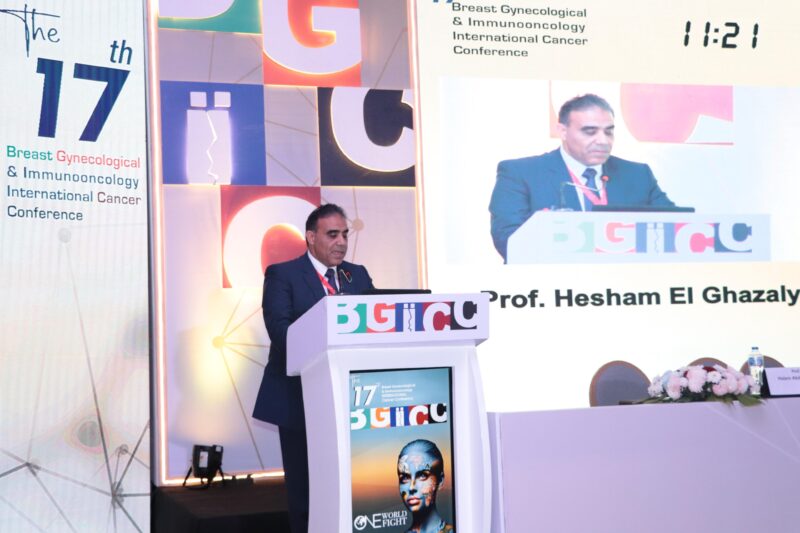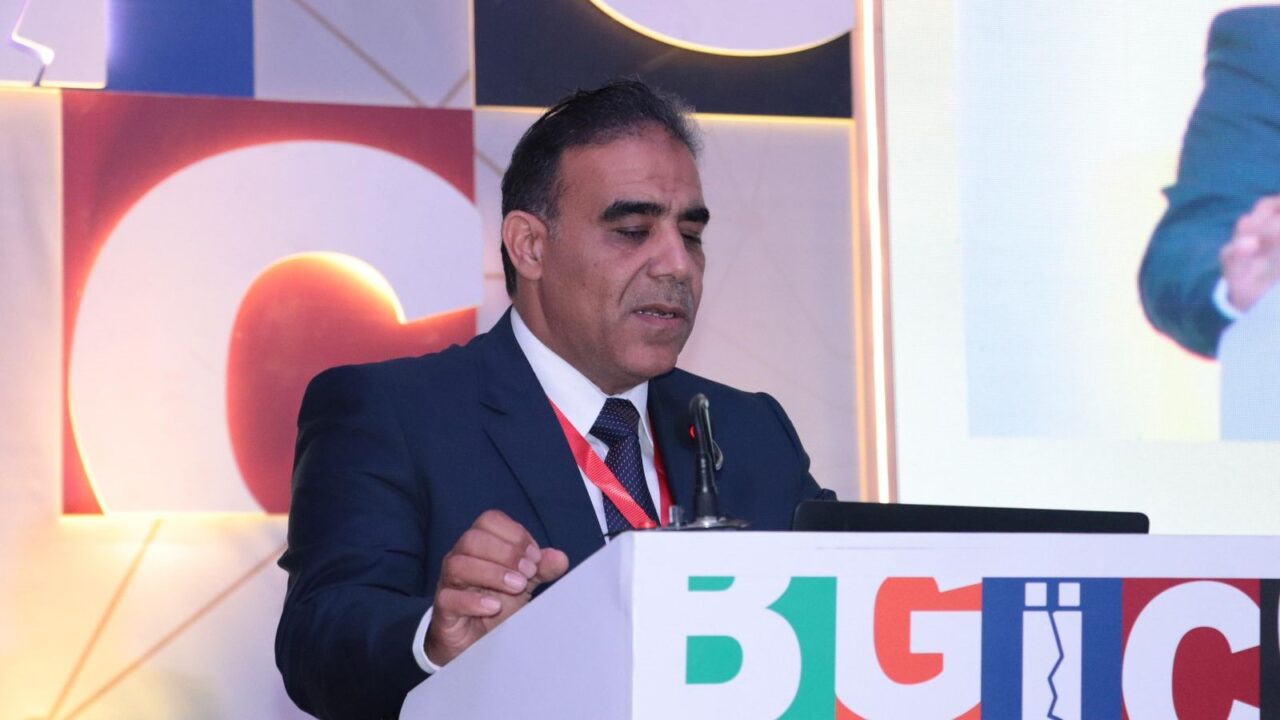Key Highlights from Prof. Hesham El-Ghazaly’s Presentation at the 17th BGICC
Prof. Hesham El-Ghazaly during the 17th Breast-Gynecological and Immuno-Oncology International Cancer Conference (BGICC) discussed challenges of young breast cancer patients, focusing on the increasing burden of breast cancer among young patients, particularly in Egypt. His talk shed light on epidemiological trends, unique challenges, and potential solutions for improving outcomes in this vulnerable population.
Key Points Discussed:
1. Epidemiology and Rising Incidence:
- Breast cancer in young women accounts for 15-18% of cases in Egypt, which is significantly higher than the global average of 5-10%.
- The increasing incidence is compounded by aggressive disease biology, delayed diagnoses, and limited public awareness.
2. Unique Challenges for Young Breast Cancer Patients:
- Prognostic Disparities: Young patients exhibit worse outcomes due to late presentation, more advanced stages at diagnosis, and aggressive tumor characteristics.
- Psychosocial Impacts: Young women face unique concerns, including body image, fertility preservation, and the psychological toll of early cancer diagnosis.
- Limited Research Representation: There is an urgent need for regional studies to address the specific needs of this group.
3. Data from Egypt:
- Over 39,000 confirmed breast cancer cases were recorded in Egypt last year, with approximately 36% occurring in women under the age of 50.
- Screening and early detection programs remain underdeveloped, especially in rural areas, leading to a high prevalence of late-stage diagnoses.
4. Fertility and Psychosocial Support:
- Fertility preservation is an often-overlooked aspect of cancer care for young women. Prof. El-Ghazaly emphasized the importance of counseling and support for these patients to maintain their quality of life post-treatment.
5. Addressing Resource-Limited Settings:
- The integration of cost-effective screening tools, such as MRI for high-risk populations, and the development of tailored guidelines were proposed as immediate priorities.
- Training programs for healthcare providers and community awareness campaigns were recommended to improve early detection and treatment adherence.
Conclusion and Call to Action
Prof. Hesham El-Ghazaly called for collaborative efforts across Egypt and the broader Middle East to:
- Develop region-specific cancer care guidelines.
- Enhance awareness and early detection strategies.
- Expand access to comprehensive, patient-centered cancer care, including fertility counseling and psychosocial support.
His presentation serves as a critical reminder of the importance of addressing breast cancer in young women as a public health priority and leveraging local and global expertise to improve outcomes in this population.

Further Reading:
How Egypt is closing the gap in breast cancer care: Dr. Hesham El-Ghazaly leads the conversation
Debate Highlights by Julie Gralow: Is There a Role for Immunotherapy in Early-Stage TNBC?
Scientific Insights from Prof. Hope Rugo: Advancements in Metastatic HER2+ Breast Cancer Therapy


